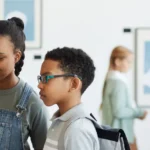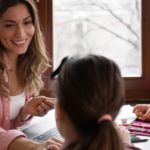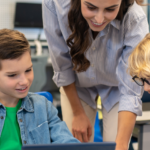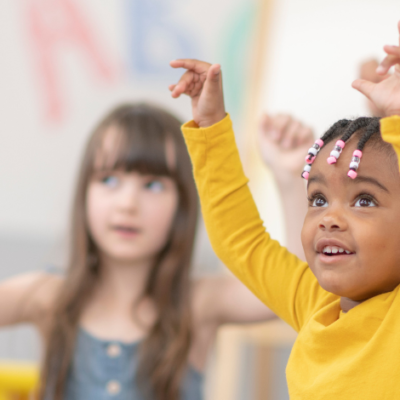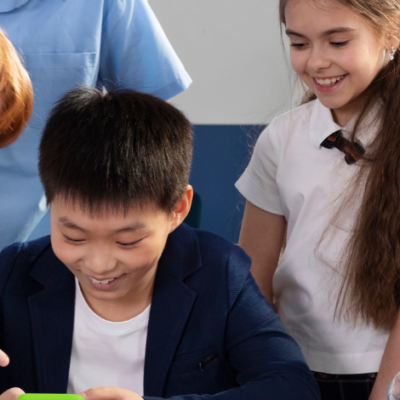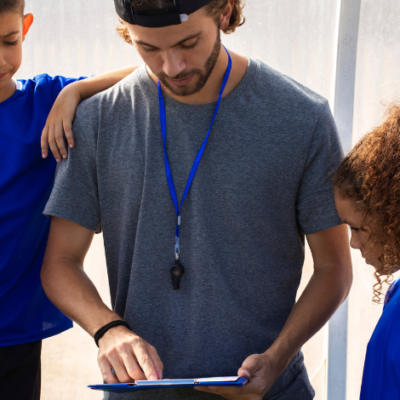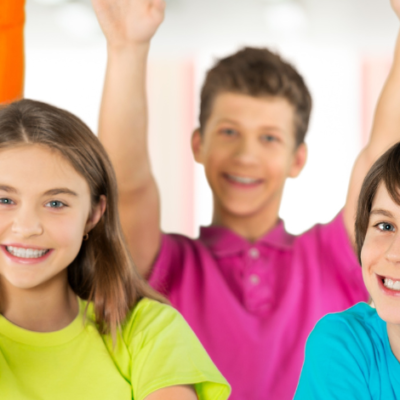Creating a positive and supportive classroom environment is crucial for the overall development and well-being of students. One key aspect of this environment is fostering positive social interaction among students. In this blog, as an educator at Manthena American School, we will explore the importance of cultivating these connections and provide proven teaching strategies to promote positive social interaction among students.
The Importance of Positive Social Interaction:
- Emotional Well-being:
Positive social interaction contributes to students’ emotional well-being. When students feel connected, supported, and included in their peer group, they experience a sense of belonging, which enhances their overall happiness and reduces feelings of loneliness and isolation.
- Enhanced Learning Experience:
Collaborative and interactive learning environments foster engagement and active participation. Positive social interaction allows students to exchange ideas, learn from one another, and gain different perspectives, leading to a richer and more comprehensive learning experience.
- Development of Essential Life Skills:
Social interaction provides a platform for students to develop essential life skills such as communication, teamwork, empathy, and conflict resolution. These skills are vital for success in academic, personal, and professional spheres of life.
Creating a Supportive Classroom Environment:
- Establishing Clear Expectations:
Clear and consistent expectations regarding respectful behavior, active listening, and empathy create a foundation for positive social interaction. Establishing classroom rules and norms that promote kindness, inclusivity, and mutual respect sets the tone for a supportive classroom environment.
- Promoting Inclusion and Diversity:
Celebrating diversity and fostering an inclusive environment encourages students to appreciate and respect differences. Engaging in discussions and activities that highlight various cultures, perspectives, and experiences helps students develop empathy and broadens their understanding of the world around them.
- Encouraging Collaboration and Teamwork:
Providing opportunities for collaborative projects and group work fosters teamwork and cooperation. Encouraging students to work together, share responsibilities, and solve problems collectively strengthens their social bonds and builds essential interpersonal skills.
Implementing Effective Teaching Strategies:
- Icebreakers and Team-Building Activities:
Icebreakers and team-building activities are effective in breaking down social barriers and fostering connections among students. These activities can be fun and engaging, helping students get to know one another, build trust, and establish a positive classroom culture.
- Cooperative Learning:
Incorporating cooperative learning strategies, such as group discussions, peer teaching,
and collaborative projects, promotes positive social interaction. By assigning tasks that require students to work together, educators provide opportunities for them to interact, communicate, and support one another, fostering a sense of teamwork and shared achievement.
- Peer Mentoring and Buddy Systems:
Implementing peer mentoring programs or buddy systems pairs older and younger students to support one another academically and socially. This allows older students to develop leadership skills while younger students receive guidance and support from their peers. These relationships create positive social interactions and a sense of belonging within the school community.
Cultivating Empathy and Social-Emotional Skills:
- Empathy Exercises and Role-Playing:
Engaging students in empathy exercises and role-playing activities help them develop a deeper understanding of others’ perspectives and experiences. Through these activities, students can learn to recognize and validate emotions, practice active listening, and develop empathy, essential skills for positive social interaction.
- Reflective Discussions:
Creating a safe and open space for reflective discussions allows students to share their thoughts and feelings. Engaging in meaningful conversations about topics such as kindness, respect, and understanding helps students develop their social-emotional skills and fosters empathy and positive social interaction.
- Mindfulness and Emotional Regulation Practices:
Incorporating mindfulness and emotional regulation practices into the classroom routine supports students’ social-emotional well-being. Techniques like deep breathing exercises, mindfulness activities, and emotional check-ins help students manage their emotions, reduce stress, and cultivate positive relationships with their peers.
Engaging Parents and Caregivers:
- Parent-Teacher Collaboration:
Collaborating with parents and caregivers is essential in promoting positive social interaction. Regular communication, parent-teacher conferences, and involvement in school activities allow educators to share information about social development strategies and foster a partnership in supporting students’ social growth.
- Family Involvement in Social Activities:
Organizing social activities that involve families, such as community events or class celebrations, promotes positive social interaction among students and their families. These events create opportunities for connection, bonding, and shared experiences, strengthening the sense of community within the school.
- Communication Channels for Feedback and Support:
Establishing open communication channels with parents and caregivers provides a platform for feedback and support. By actively listening to their perspectives and concerns, educators can address any challenges that may impact students’ social interaction and work together to create a supportive environment.
Conclusion:
Promoting positive social interaction among students is essential for their emotional well-being, academic growth, and the development of crucial life skills. By creating a supportive classroom environment, implementing effective teaching strategies, cultivating empathy and social-emotional skills, and engaging parents and caregivers, We at Manthena American School can nurture connections and empower students to thrive socially and academically.
Let us prioritize the cultivation of positive social interaction, as it not only enhances the educational experience but also equips students with the essential skills needed for success in all aspects of their lives. Together, we can create a learning environment where students feel supported, valued, and connected to their peers, fostering a brighter future for all.



